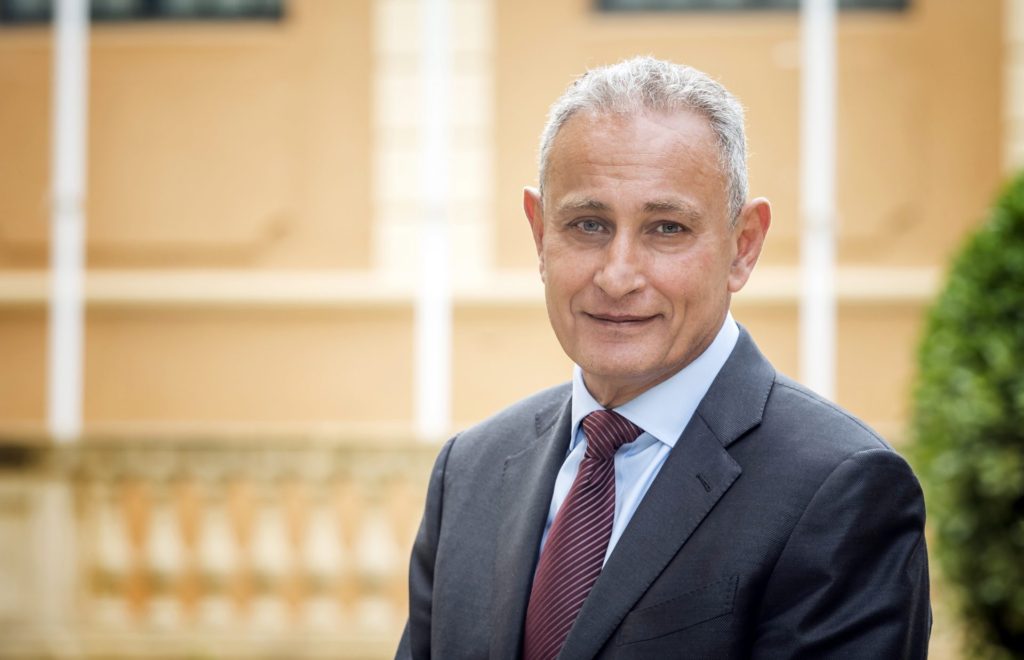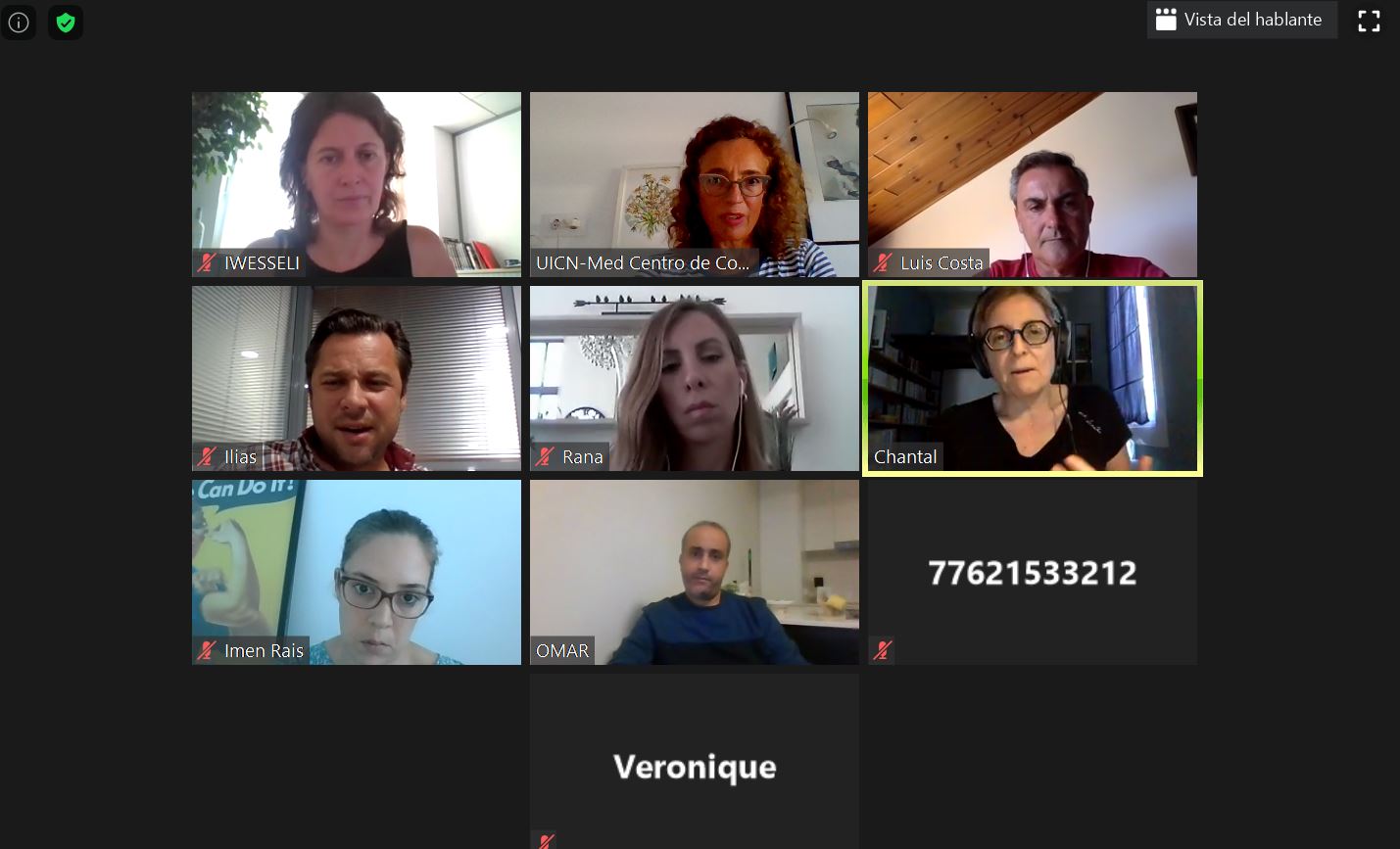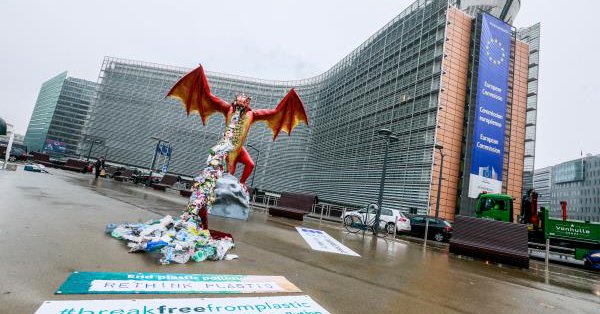Resilience must be at the heart of each and every action we undertake from now on, Union for the Mediterranean Secretary General, Nasser Kamel, has told the Cyprus News Agency, in an interview on the effects of the COVID-19 pandemic in our region and globally, the level of solidarity, the lessons learned, the links between the pandemic an the climate change and how we should plan our next steps so we can shield our communities.
Kamel pointed out that undeniably COVID-19 has pushed us into a new era, and our collective response when tackling the pandemic, will determine how fast we recover and how well we handle these pressing challenges.
“This is an even more urgent crisis for the Mediterranean region, where conditions of fragility and exposure are further concentrated. For instance, the region warms 20% faster than the rest of the globe based on the first scientific report on the impact of climate change in the Mediterranean, developed with the support of the UfM,” he says.
UfM SG underlined that this pandemic, the climate change and the resultant economic exposure, cannot be tackled one by one. He said that there are clear links between them all, starting with the way they deepen existing inequalities by impacting vulnerable groups and economies unevenly and to a devastating effect.
“For example, communities unable to self-isolate due to poor housing could drive up infection rates. Also, pressure on public health systems will sap resources from the economy that could otherwise be invested in climate change mitigation,” he said.
This is the reason, he pointed out, why resilience must be built through a greater commitment to holistic approaches that protect and boost the environmental, social, and economic recovery, all at once, and this should be tackled at the local, regional and international levels.
“I believe that after some hesitation at first, necessary to fine-tune any strategy when faced with a new crisis, the EU and other regional organisations are now reacting correctly and know how to face this challenge and channel it for better coordination and functioning in the future,” he told the CNA.
Nasser Kamel said that the unprecedented situation created by the rapid spread of COVID-19 disease around the world, reminds us that global threats know no borders. He told the CAN that the Euro-Mediterranean region needs to rebuild on a development strategy based on the promotion of local, regional and circular economies.
“This is the vision of the Union for the Mediterranean, aiming at tackling all challenges within its means. As the only regional organization bringing together, on equal footing, all Euro-Mediterranean countries, the UfM is developing a specific approach; not a distant dream, but one that is consistent with the after-COVID strategies emerging within our partner organisations and stakeholders, with whom we are gearing up to join forces,”, he said.
He specifically pointed out that since the outbreak of the COVID-19, UfM virtual activities have already brought together a wide range of experts and stakeholders to devise solutions on pressing issues.
These include an emergency plan for access to water, regional recovery plan to face water scarcity; emergency housing challenges; access to research results, exchange of information from the local to the regional scale, etc.
“We are launching a regional study on the impact of water shortage created by the pandemic in the region. This is just to name a few issues. The UfM aims also at tackling unemployment, speed-up of digitalisation, water and sanitation gaps, climate change, destabilization of health infrastructure and cross-contamination of ecosystems during the recovery phase,” he said.
UfM SG said that although those meetings are mainly kept between experts and governments, a series of webinars will be launched throughout the Union’s online platforms these upcoming weeks, to send a clear and strong message; a message of hope and trust for all our citizens.
Kamel said that even as the pandemic has pushed climate change out of the headlines, the threat to the planet has not gone away. He argued that in the absence of a globally coordinated response, we can expect more shocks in the form of extreme weather events or further infectious outbreaks.
“ There are clear lessons that can be taken from this crisis and can act as a guide now and in the future. Among these, two particular lessons have been reinforced during the current pandemic: the importance of being united in both commitment and a reliance on scientifically driven solutions. Progress here is already being made as the UfM is providing the space to first agree and then act on the region’s most pressing environmental priorities with integrated, long-term strategies,” he underlined.
UfM SG pointed out that the first-ever scientific report on the impact of climate change in the Mediterranean region developed with the Union’s support, notably shows that around 94% of primary and secondary emissions emanate from human activity and in particular from our choices regarding heating, transportation, energy sources, heavy industry and agricultural production.
“If we want to create resilient societies after the pandemic, we must attain strong fiscal support for green investment – dematerialisation, digitalisation, energy efficiency – starting with the most severely hit and more polluted areas that are disproportionately home to the least affluent communities. In a few words, resilience must be at the heart of each and every action we undertake from now on,” he underlined.
Kamel told the CNA that the Euro-Mediterranean region needs to build a development strategy based on the promotion of local, regional and circular economies which can be exploited as engines of a growth that is sustained and yet sustainable, fairly distributed yet still drives competition, and that has gender equality and young people at its heart.
He also referred to the 25-year anniversary of the Barcelona process, aimed at strengthening Euro-Mediterranean relations. He pointed out that the recognition that closer ties were in everyone’s interest would later lead to the creation of the Union for the Mediterranean. However, he told the CNA, this anniversary comes at a time of great disruption for the region.
“This year must be a year of dialogue, when we come together to discuss our priorities and how we can build a better future for our region, with a determined vision guided by the 2030 Sustainable Development Goals,” he said.
Although he acknowledges that it is too early for a thorough assessment on the impact of COVID-19, it is obvious that the COVID crisis will generate environmental, human, societal and economic distress.
“There are key sectors such as tourism or maritime transport that are terribly affected. Yet, we have the opportunity, not only to rethink but to implement new models of development and ensure that the post COVID recovery be carried out along the lines of what imagined before new economic model where environmental sustainability and circularity at the core,” he told the CNA.



